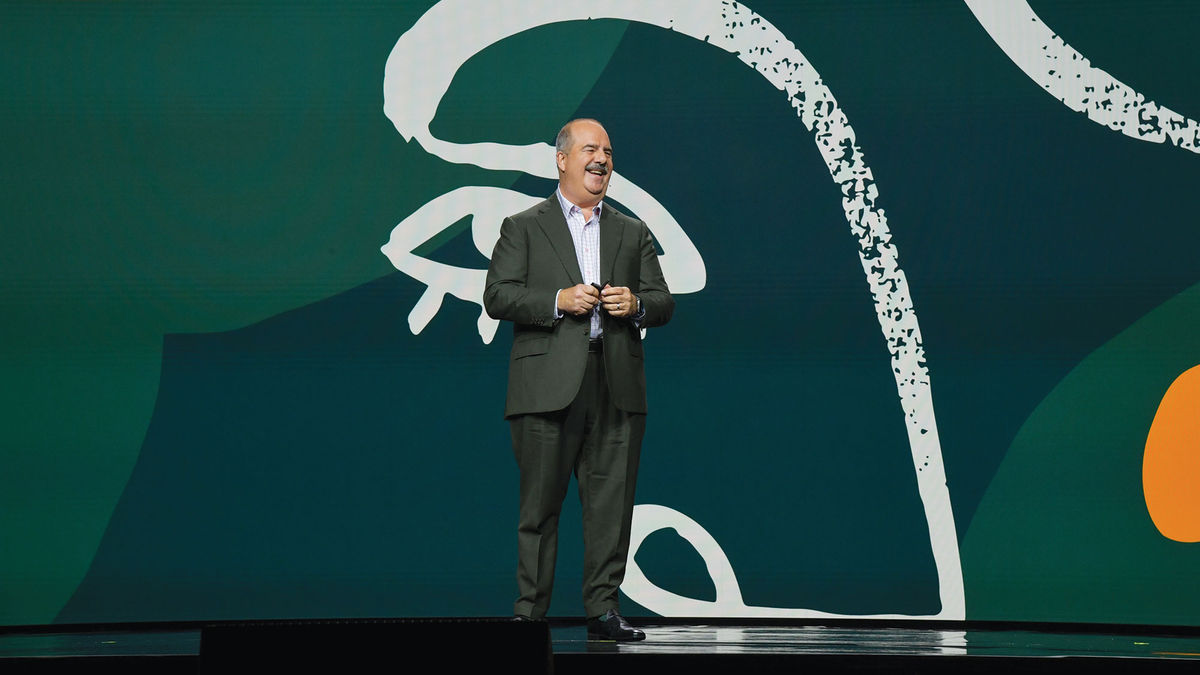LAS VEGAS — Virtuoso Travel Week, a 4,700-attendee-strong event that descends on Las Vegas every August, is all about personal connections. From one-on-one meetings between advisors and suppliers to this year’s Hotel Showcase featuring preferred properties, the week is brimming with networking possibilities.
And while face time between attendees is the highlight of Virtuoso Travel Week, the role that technology plays in the travel agency space is also critical. And it’s evolving.
As Virtuoso chairman and CEO Matthew Upchurch has often said, technology’s role can help advisors “automate the predictable so you can humanize the exceptional.”
During a media briefing, Upchurch outlined Virtuoso’s strategy in providing technology to member agencies: It’s a mix of developing internal technology and relying on outside vendors, he said.
“Our vision of technology, particularly because of the way that Virtuoso is built, is that it’s completely impractical for Virtuoso to create a singular workflow,” Upchurch said. “It’ll never happen.”
So the consortium is focused on meeting members where they are. As an example, Upchurch pointed to Virtuoso’s digital experience for members. The consortium recently redesigned its member homepage. According to Helen McCabe-Young, senior vice president of marketing, the site is mobile-optimized with an improved search function, something members requested.
It’s a solid digital home base for members, Upchurch said, but a number of agencies have built their own proprietary platforms. For them, Virtuoso is focused on integrating systems and providing them with the data and content they need.
For some technological needs, Virtuoso partners with third-party providers. With those, Upchurch said, “we actually want there to be some competition.”
For example, around a decade ago when digital itinerary apps for advisors emerged, some agency networks opted to choose one provider. But Virtuoso “anointed three tools and allowed the members to choose,” Upchurch said.
“I have a very specific philosophy that when you give somebody one option, all they do is focus on why it won’t do this, why it won’t do that,” he said. “When you give people an option, it makes them cognitively spend time looking at the differences, and it increases the chances that they will be able to think of it positively and leverage it differently.”
Those itinerary-management programs — Axus (owned by Travel Weekly parent company Northstar Travel Group), Travefy and Umapped — were part of Virtuoso’s Incubator program, which paired startups with Virtuoso members for testing. The Incubator was the precursor to today’s Travel Tech Summit, which was held Aug. 10 during Virtuoso Travel Week.
It featured high-level discussions of technology; an agency owner panel on data and AI; and the Startup Showcase, featuring 15 startups working in the travel technology space.
One of the topics addressed was the seemingly ubiquitous technology of generative AI.
Upchurch encouraged travel advisors to start using generative AI tools now. A potential use case he offered: Use the tools to summarize itineraries or any kind of document with a lot of detail.
AI is already baked into a number of platforms Virtuoso uses, Upchurch said. But he also sees its potential for the future.
“There’s no shortage of projects,” he said. “One of the ones that I want to do is basically use AI to build on the collective intelligence of the network on a global basis.”













